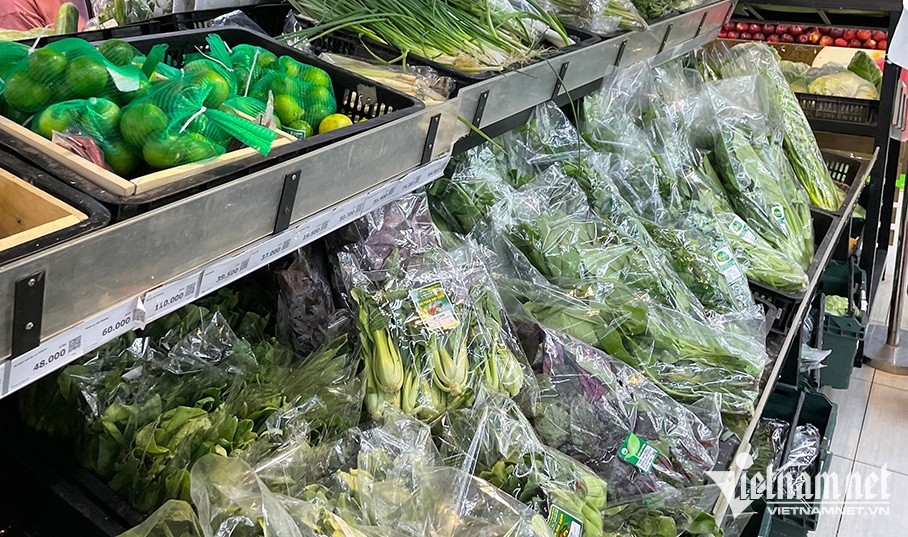
Deputy Minister of MARD Phung Duc Tien said on October 3 that the ministry held a working session with local agriculture departments, retail associations and enterprises on farm, forestry and seafood quality management after local newspapers reported that "dirty" vegetables were now on sale at supermarkets.
Some companies have been reported as collecting vegetables at traditional wholesale markets, and packaging the vegetables and labeling them with VietGAP stamps to sell to supermarkets.
This has rung an alarm bell about the quality of farm produce, food hygiene, and labelling and traceability.
MARD has also instructed agencies to check all standards, regulations and sanctions to find out if they are still appropriate. If regulations are no longer suitable to the new circumstances, they must be amended immediately.
Tien stressed that this must be done in a transparent and strict way, not only to serve exports but also the domestic market.
MARD has asked the Department of Crop Production to examine and re-assess the licensing of 12 units which have the right to provide VietGAP certificates. If violations are found, they will be strictly sanctioned, according to Tien.
The ministry has also requested Nafiqad to take samples to examine the quality of vegetables and fruits at the three largest markets in HCM City, including Tan Xuan, Binh Dien and Hoc Mon.
Nafiqad (the National Agro-Forestry-Fisheries Quality Assurance Department) on September 21 sent a dispatch to the Food Safety Management Boards if HCM City, Da Nang and Bac Ninh, and local agriculture departments, requesting an investigation and clarifying the information that counterfeit VietGAP vegetables were at supermarkets.
A report showed that Nafiqad had examined 2,503 samples of plant protection chemical and heavy metal residues so far this year.
Forty samples, or 1.6 percent, were found as having residue higher than allowed. None of the 13 samples were found in violations of microbiological criteria.
In 2018, the agency examined 13,376 samples and discovered violations of plant protection chemicals and heavy metal residue in 198 samples, or 1.48 percent.
The number of cultivation establishments applying VietGAP, VietGAHP and equivalent standards is on a rapid rise.
In 2018, 1,845 establishments used VietGAP and VietGAHP for 20,000 hectares of farming area. The figures were 8,304 and 480,000 hectares, respectively, in the first nine months of the year.
Tam An